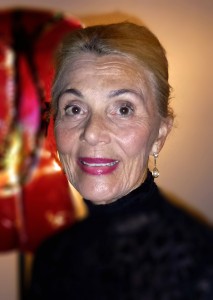An Evening to Remember
 isbscience.org/news/2012/10/22/an-evening-to-remember/
isbscience.org/news/2012/10/22/an-evening-to-remember/About 20 years ago, Carole Ellison attended a lecture by Dr. Lee Hood shortly after he had arrived at the University of Washington to start the Department of Molecular Biotechnology. She was impressed by his vision for the future of science and healthcare and vowed to meet him one day. This wish and her lifelong interest in science and human health led her to ISB.
This summer, Carole finally was able to meet Lee. She agreed to host a parlor meeting at her beautiful waterfront home in Kirkland for ISB friends, donors and supporters. The featured speaker was Dr. Ilya Shmulevich, professor at ISB, who presented a talk on “Deciphering the Complexity of Cancer.” (If you haven’t read the ISB Science Report inside this issue of Molecular Me, be sure to take a look. It discusses some of the cancer research that the Shmulevich group conducts.) After the presentation, the audience of about 50 guests engaged in a lively question-and-answer session with Ilya and Lee who worked in seamless tandem, drawing people into the research and mission of ISB.
The surprise of the evening was when Ilya stepped up to the baby grand piano and treated guests to a virtuosic performance that included Bach and Ginastera pieces. The evening was a perfect intersection of science, art and hospitality. Many thanks to Carole for her generosity.






